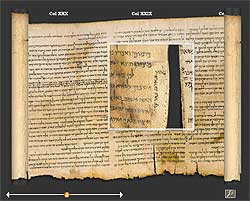There is an interesting article on “Kosher Concubines” in Arutz Sheva, an Israeli national online newspaper. The news story reports on a controversial article written by Professor Tzvi Zohar that proposes to deal with the problem of sex between unmarried religious Jewish young people by renewing the biblical institution of the pilegesh (פלגש×?), a sort of “kosher concubine.” The article (in modern Hebrew) appeared in the spring edition of the Israeli periodical Akdamot.
Here is an excerpt:
The thesis of Zohar’s article is that since scores of young men and women from the religious-Zionist community are shacking up together out of wedlock, something must be done to make this permitted in the eyes of Jewish Law.
….
To his understanding, there is no obligation for a couple to marry at all. However, in order that young unwed couples can have a clear conscience and shack up with each other until they find their permanent sanctified mates, he proposes to reinstate the Biblical practice of ‘kosher mistresses.’
This practice, he asserts, has been approved by a long list of respected halachic authorities in the past. All that a pilegesh has to do is go to the mikvah (ritual bath) according to the laws of Jewish family purity, in order to guard against the grave infraction of niddah, which outlaws physical contact with a woman during and shortly after her menstrual cycle. This would allow, Zohar asserts, young people to live together in a loving relationship without getting married, all under the “chuppah” [canopy] of Jewish Law.
The rest of the news story critiques Zohar’s questionable interpretation of the Jewish law. The biggest problem to his argument is that the in the Hebrew Bible a man who had a concubine lived with her on a permanent basis, just like a wife. In fact, concubines were pretty much the same as wives, though of a secondary rank. At any rate, the practice of taking a concubine in OT times is not really comparable to modern practices of casual sexual relationships.
Furthermore, while polygamy (technically polygyny) was practiced according to the Hebrew Bible and that men had more than one wife and/or concubines, this is never presented as an ideal. If anything, it is just the opposite. Here are a number of examples of polygyny in the Hebrew Bible:
- Lamech with his two wives, Adah and Zillah (Gen 4:23)
- Abraham with Sarah and his concubines Hagar and Keturah (Genesis 16; 25:1–2)
- Jacob with Leah and Rachel (Gen 29:15–30)
- Esau and his three wives (Gen 26:34; 36:2; 28:9)
- Gideon with his “many wives” (Judg 8:30)
- Elkanah with Hannah and Peninnah (1 Sam 1:2)
- David with seven named wives (1 Sam 18:17–30; 25:38–43; 2 Sam 3:2–5) and additional unnamed wives and concubines (2 Sam 5:13)
- Solomon and his royal harem of 700 wives and 300 concubines (1 Kgs 3:1; 11:3)
- Rehoboam with his 18 wives and 60 concubines (2 Chron 11:21).
A few conclusions may be drawn from this list. First, it was rare to have more than one wife. Most of the examples cited are significant, whether leaders or rich or both. In addition, those that had more than one wife and/or concubine often suffered the consequences! In many of the above households polygyny was a major cause of significant problems. It is not very difficult to read between the lines and recognize the negative characterization of polygynous relationships (and of course, in some cases the condemnation is rather blatant).
At any rate, the article is certainly interesting — especially the discussion of Jewish halakah.

